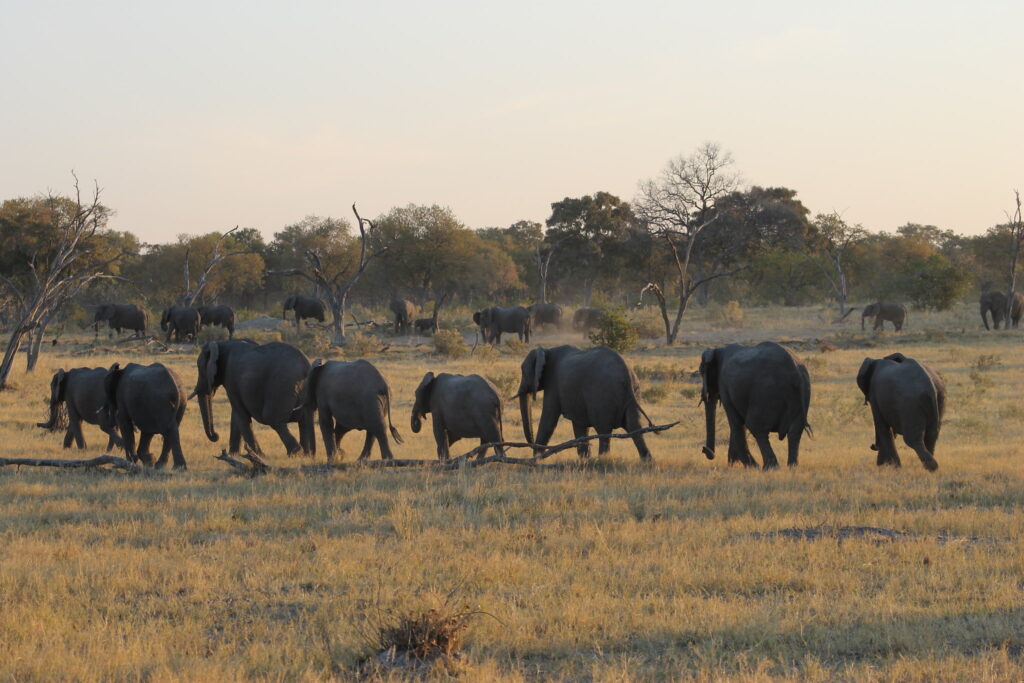
This article was originally published in The Dallas Morning News.
The Biden administration is considering making American hunters clear new hurdles to legally import African elephant hunting trophies. Supporters claim the new rules will better protect elephants by forcing other countries to generate redundant scientific studies and adopt laws in the mold of our Endangered Species Act. But the hurdles also risk discouraging American hunters, whose fees help fund elephant conservation, from visiting the continent while African nations catch up with American demands. The move could starve African wildlife agencies of funding critical to elephant conservation.
While there are opportunities to improve how elephant hunting is managed, strangling wildlife agency budgets is likely to hurt elephants more than it helps. Smaller budgets mean reduced anti-poaching efforts and decreased ability to maintain habitat. Until other sources to fund these important conservation activities are found, the Biden administration should not impose rules that would make Africa a less attractive destination for American hunters.
Like in the United States, wildlife agencies in Africa heavily rely on the sale of hunting licenses and permits to fund conservation projects. In countries like Botswana, Zimbabwe, and Tanzania, most of these licenses and permits are sold to Americans. Permits to legally hunt elephants are some of the most expensive and are a key source of agency funding. For example, in 2021 Botswana’s Department of Wildlife and National Parks raised $2.7 million, or roughly 10 percent of its total budget, from the sale of elephant hunting permits.
How do African countries use revenues from elephant hunting? One way is to support the upkeep of national parks that draw photo tourists to the continent to see elephants and other wildlife. Zimbabwe, for example, has committed $35 million raised through elephant hunting to fund national park management.
Anti-hunting activists argue elephants should not be hunted because it is driving them to extinction. While it is true that elephants are listed as threatened under the Endangered Species Act, the law recognizes the important role that hunting plays in conservation. Elephants are covered under a section of the act that allows for a limited harvest of a listed species if the harvest creates incentives to conserve the species. The agency revenues and other economic benefits that elephant hunting foster, such as jobs in rural communities, have qualified as such incentives for decades. Under the Biden administration’s proposal, however, these incentives that are producing results today would be replaced with laws that have yet to be written and scientific research that has yet to be done.
The proof these incentives work is in the numbers. The countries with Africa’s largest elephant populations—Botswana, Zimbabwe, and Tanzania—all allow regulated elephant hunting. Moreover, elephant populations in these countries have dramatically increased, supported by the incentives that hunting creates. Botswana was home to only 50,000 elephants in the 1990s. Today, more than 130,000 of the animals roam the country, making it the largest elephant population in Africa. Neighboring Zimbabwe is home to the continent’s second-largest elephant population, about 80,000 animals. This is twice the number of elephants that called the country home than in the 1970s when the Endangered Species Act was passed. Tanzania has seen similar growth, with elephant numbers increasing from 43,000 in 2014 to approximately 60,000 today.
One key area the Biden administration’s proposal will hinder is anti-poaching efforts. Funds raised through legal elephant hunting have given countries the means to face poaching head on. For example, the $2.7 million Botswana’s wildlife agency raised through the sale of elephant hunting permits in 2021 is enough to cover the salaries of nearly 450 rangers to patrol the country’s national parks and other protected areas. This funding will dry up if American hunters stop visiting the country.
It is commendable that the Biden administration wants to protect Africa’s elephants. But more laws and more science will not pay rangers’ salaries or fund the management of national parks the way elephant hunting currently does. Elephants are once again thriving in countries that harness the positive incentives and conservation funding generated by elephant hunting. If the Biden administration insists on undermining such incentives with new hurdles for American hunters, then its effort to protect elephants is likely to backfire and leave the species worse off than before.



